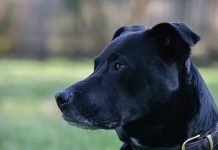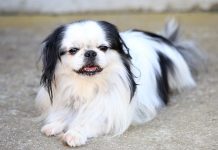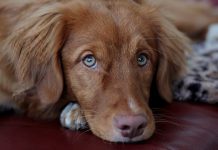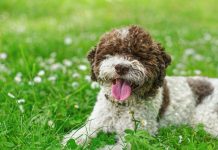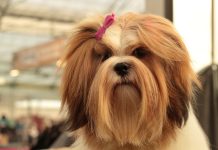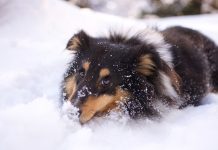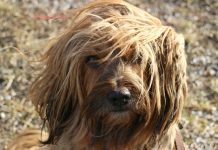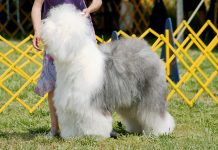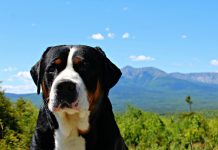History and Origins of the Coonhound Breed
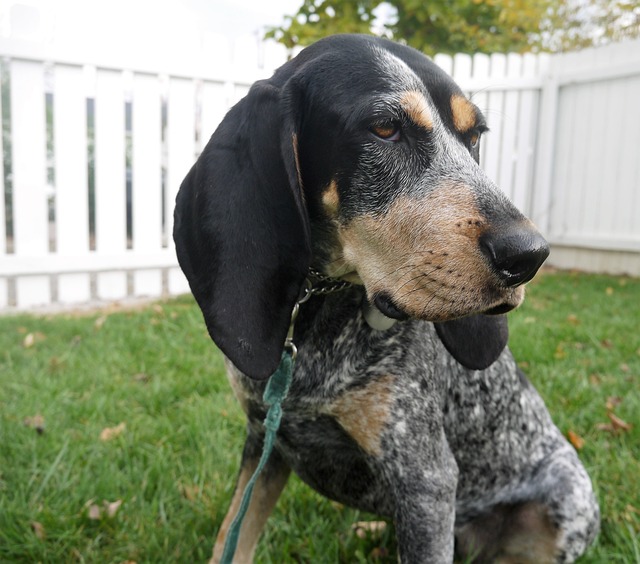
The Coonhound breed encompasses several distinct breeds of hounds developed primarily for hunting raccoons and other game. Let’s delve into the history, origins, and physical characteristics of Coonhounds:
History and Origins of the Coonhound Breed:
- Early Development: Coonhounds are a group of scent hounds bred in the United States for hunting nocturnal game, particularly raccoons. They were developed by crossing various European hound breeds brought to America by settlers, including Bloodhounds, Foxhounds, and other scent hounds.
- Specific Breeds: Several breeds fall under the Coonhound category, each with its unique traits and hunting abilities. These include the Black and Tan Coonhound, Redbone Coonhound, Bluetick Coonhound, Treeing Walker Coonhound, English Coonhound (American English Coonhound), and the Plott Hound.
- Purpose: Coonhounds were originally bred to track, chase, and tree raccoons. Their keen sense of smell, endurance, and vocal abilities made them highly effective in hunting these elusive nocturnal creatures.
- Recognition: The various Coonhound breeds have been recognized by breed clubs and kennel clubs, such as the United Kennel Club (UKC) and the American Kennel Club (AKC), which have established breed standards and guidelines.
Physical Characteristics and Appearance of Coonhounds:
Each Coonhound breed has its unique physical characteristics, but they share some common traits:
- Size: Coonhounds are typically medium to large-sized dogs, with males ranging from 22 to 27 inches (56 to 69 cm) in height and weighing 45 to 80 pounds (20 to 36 kg). Females are slightly smaller.
- Coat: Coonhounds have short, dense, and glossy coats that are weather-resistant. The coat colors vary depending on the breed and can include black and tan, red and white, blue and white, or tri-color (black, white, and tan).
- Head: Coonhounds have long, slightly domed heads with broad skulls. Their ears are long and floppy, hanging close to the cheeks.
- Body: They have muscular, well-balanced bodies with deep chests, strong backs, and straight legs. The tail is set high and carried gaily.
- Eyes and Expression: Coonhounds have expressive eyes that reflect intelligence and determination. Their eyes are typically brown or hazel.
- Feet: Coonhounds have compact, rounded feet with thick pads, ideal for traversing various terrains while hunting.
- Voice: Coonhounds are known for their distinctive baying or barking while on the hunt. They use their powerful voices to communicate with their handlers and tree their quarry.
Temperament and Characteristics:
Coonhounds are known for their friendly, sociable, and outgoing personalities. They are intelligent, courageous, and driven when hunting but are generally laid-back and affectionate companions at home. Coonhounds are excellent family dogs and get along well with children and other pets when properly socialized.
In summary, Coonhounds are a versatile group of hounds bred for hunting and known for their distinctive appearance, keen sense of smell, and friendly temperament. They make loyal and loving companions for active families who appreciate their hunting heritage and enjoy spending time outdoors.
Coonhound Temperament and Personality Traits:
- Independent: Coonhounds are independent thinkers and can be strong-willed. They have a natural hunting instinct and may follow scents or distractions, requiring patient training and consistent guidance.
- Friendly and Sociable: Coonhounds are typically friendly, outgoing, and sociable dogs. They enjoy the company of their families and are good-natured with strangers when properly socialized.
- Loyal and Affectionate: Coonhounds form strong bonds with their families and are loyal companions. They thrive on human companionship and enjoy being part of family activities.
- Energetic and Active: Coonhounds have moderate to high energy levels. They require regular exercise and mental stimulation to keep them physically and mentally healthy.
- Curious and Nose-Driven: Coonhounds have an exceptional sense of smell and are driven by scents. They can be curious explorers and may follow interesting scents when outdoors.
- Vocal: Coonhounds are known for their distinctive baying or barking, especially when on the hunt. They use their voice to communicate with their handlers and alert them to the presence of game.
- Good with Children: Coonhounds are generally good with children and can be patient and tolerant. However, as with any dog breed, supervision is important to ensure mutual respect and gentle interactions.
- Alert and Watchful: Coonhounds are naturally alert and make good watchdogs. They will alert their owners to unfamiliar sounds or visitors.
Training and Socialization Needs for Coonhounds:
- Early Socialization: Begin socializing your Coonhound puppy early to expose them to various people, animals, and environments. This helps prevent shyness or fearfulness as they mature.
- Positive Reinforcement Training: Use positive reinforcement methods such as treats, praise, and rewards to motivate and reward desired behaviors. Coonhounds respond well to gentle but firm training techniques.
- Consistent Leadership: Establish yourself as a calm and confident leader for your Coonhound. Set clear rules and boundaries, and be consistent in your training approach.
- Basic Obedience Training: Teach your Coonhound basic commands such as sit, stay, come, and heel. Training sessions should be short, engaging, and consistent to keep them focused.
- Exercise and Mental Stimulation: Provide ample daily exercise and mental stimulation for your Coonhound. Long walks, runs, and interactive play sessions help fulfill their physical and mental needs.
- Channel Hunting Instincts: Since Coonhounds have a strong prey drive, provide them with appropriate outlets for their natural instincts. Activities such as scent games, tracking, or agility training can keep them engaged and satisfied.
- Patience and Persistence: Coonhounds can be stubborn or easily distracted due to their hunting instincts. Be patient and persistent in your training efforts, and avoid harsh punishment or negative reinforcement.
- Supervised Off-Leash Time: Due to their tendency to follow scents, Coonhounds should be supervised when off-leash in unfenced areas. Use a secure leash or harness during walks to prevent them from wandering off.
By understanding and meeting the training and socialization needs of Coonhounds, you can help them become well-behaved, well-rounded companions. Consistent training, positive reinforcement, and plenty of exercise are essential for raising a happy and balanced Coonhound.
Health Considerations and Common Issues in Coonhounds:
- Hip Dysplasia: Coonhounds may be prone to hip dysplasia, a genetic condition where the hip joint doesn’t develop properly, leading to arthritis and mobility issues. Regular exercise and maintaining a healthy weight can help reduce the risk.
- Ear Infections: Coonhounds have long, floppy ears that can trap moisture and debris, leading to ear infections. Regular ear cleaning and inspection can help prevent infections.
- Bloat (Gastric Dilatation-Volvulus): Deep-chested breeds like Coonhounds are susceptible to bloat, a life-threatening condition where the stomach fills with gas and twists. Feeding smaller meals and avoiding vigorous exercise after meals can reduce the risk.
- Obesity: Coonhounds love food and can be prone to obesity if their diet is not properly managed. Monitor their food intake and provide regular exercise to maintain a healthy weight.
- Hypothyroidism: Some Coonhounds may develop hypothyroidism, a condition where the thyroid gland doesn’t produce enough hormones. Symptoms include weight gain, lethargy, and skin problems. Treatment involves hormone replacement therapy.
- Eye Issues: Coonhounds may be prone to various eye conditions, including progressive retinal atrophy (PRA) and cataracts. Regular veterinary check-ups can help detect and manage these issues.
- Heart Problems: Certain Coonhound breeds may be at risk of developing heart conditions such as mitral valve disease. Regular cardiac evaluations are important for early detection and treatment.
Living with a Coonhound: Suitable Environments and Lifestyle Considerations:
- Active Lifestyle: Coonhounds are active dogs that require plenty of exercise and mental stimulation. Provide daily walks, runs, or playtime in a secure fenced yard to keep them happy and healthy.
- Secure Enclosure: Coonhounds have a strong prey drive and may chase small animals if given the opportunity. Ensure your yard is securely fenced to prevent escapes.
- Indoor Comfort: While Coonhounds enjoy outdoor activities, they should live indoors with their families. Provide them with a comfortable indoor space to rest and relax.
- Social Interaction: Coonhounds are social dogs that thrive on companionship. They enjoy being part of the family and may develop separation anxiety if left alone for long periods.
- Training and Obedience: Coonhounds benefit from consistent training and positive reinforcement. Teach them basic obedience commands and provide mental challenges to keep them engaged.
- Grooming Needs: Coonhounds have short coats that are easy to maintain. Regular brushing and occasional baths are usually sufficient to keep their coat clean and healthy.
- Regular Veterinary Care: Schedule regular veterinary check-ups, vaccinations, and preventive care for your Coonhound. Early detection and treatment of health issues can prolong their lifespan and quality of life.
- Safety Precautions: Due to their hunting instincts, Coonhounds should be supervised outdoors and kept on a leash or in a secure area when not supervised. Avoid letting them roam freely in unfenced areas.
By providing a loving home environment, regular veterinary care, appropriate exercise, and mental stimulation, you can ensure a happy and fulfilling life for your Coonhound. Understanding their health considerations and lifestyle needs will help you be a responsible and attentive owner to this wonderful breed.
Coonhound Variations and Breeding Practices

Coonhounds encompass several distinct breeds, each with its unique characteristics and hunting abilities. While they share similar traits and purposes, such as hunting game like raccoons, each Coonhound breed has its own history, appearance, and breeding practices. Let’s explore the variations among Coonhound breeds and the common breeding practices associated with them:
Common Coonhound Breeds:
- Black and Tan Coonhound:
- Originated in the United States.
- Known for its distinctive black and tan coat.
- Bred for trailing and treeing raccoons and other game.
- Strong, determined, and confident temperament.
- Redbone Coonhound:
- Developed in the Southern United States.
- Red coat color, often solid or with minimal white markings.
- Excellent scenting abilities and endurance.
- Friendly, sociable, and energetic personality.
- Bluetick Coonhound:
- Originated in the United States, possibly from French hounds.
- Blue and white ticked coat pattern.
- Known for its keen sense of smell and tracking abilities.
- Loyal, intelligent, and affectionate disposition.
- Treeing Walker Coonhound:
- Descended from English and American Foxhounds.
- Named for its ability to “tree” or corner game.
- Sleek and athletic build with a tri-color coat pattern.
- Energetic, outgoing, and enthusiastic working dog.
- English Coonhound (American English Coonhound):
- Developed in the United States from Foxhound-type breeds.
- Versatile hunter known for trailing and treeing game.
- Friendly, easygoing, and adaptable temperament.
- Often used for raccoon hunting but also capable of hunting other game.
Breeding Practices for Coonhounds:
- Selection for Working Traits: Coonhound breeds are typically bred for their hunting instincts, scenting abilities, endurance, and physical stamina. Breeders select dogs with proven working ability to preserve these traits.
- Health Screening: Responsible breeders perform health screenings, including genetic tests for common breed-specific health issues such as hip dysplasia, eye problems, and heart conditions. This helps ensure that breeding pairs are healthy and less likely to pass on genetic disorders to their offspring.
- Conformation to Breed Standards: Each Coonhound breed has specific conformation standards outlined by kennel clubs. Breeders select dogs that conform to these standards in terms of size, coat color, structure, and temperament.
- Temperament and Trainability: Coonhounds should exhibit desirable temperament traits such as friendliness, sociability, and trainability. Breeders aim to produce dogs that are well-suited for both hunting and companionship roles.
- Ethical Breeding Practices: Reputable breeders prioritize the welfare and health of their dogs and puppies. They provide proper care, socialization, and early training to ensure well-adjusted and healthy puppies.
- Avoiding Inbreeding: To maintain genetic diversity and reduce the risk of inherited health issues, responsible breeders avoid excessive inbreeding and carefully select unrelated or minimally related breeding pairs.
- Education and Support: Ethical breeders educate potential puppy buyers about the specific needs and characteristics of Coonhound breeds. They offer ongoing support and guidance to ensure that puppies are placed in suitable homes.
By following responsible breeding practices and prioritizing the preservation of working abilities, health, and temperament, breeders contribute to the longevity and well-being of Coonhound breeds. If considering acquiring a Coonhound puppy, seek out a reputable breeder who demonstrates a commitment to breed standards, health testing, and ethical breeding practices.
50 Best Names with Meanings for Coonhounds
Naming your Coonhound is a fun and important part of welcoming them into your family. Here are 50 great names with meanings that could be perfect for your Coonhound:
Male Coonhound Names:
- Hunter – Reflects their hunting heritage and keen sense of smell.
- Tracker – Symbolizes their ability to track game.
- Ace – Represents excellence and skill.
- Ranger – Reflects their outdoor spirit and adventurous nature.
- Buddy – Perfect for a loyal and friendly companion.
- Scout – Symbolizes their scouting abilities in the wilderness.
- Rex – Means “king,” ideal for a confident and noble dog.
- Oakley – Represents strength and durability.
- Tucker – Means “cloth-maker” or “to torment,” suitable for a lively dog.
- Scooter – Ideal for a fast and energetic Coonhound.
Female Coonhound Names:
- Sasha – Means “defender of mankind,” perfect for a protective dog.
- Willow – Symbolizes grace and flexibility.
- Echo – Reflects their vocal nature and echoing bays.
- Luna – Means “moon,” ideal for a calm and mysterious dog.
- Zoey – Means “life,” suitable for a lively and energetic dog.
- Amber – Represents their warm and friendly personality.
- Gypsy – Reflects their free-spirited and adventurous nature.
- Maple – Represents sweetness and strength.
- Harmony – Ideal for a balanced and well-behaved dog.
- Scout – Represents their scouting abilities in the wilderness.
Unique Coonhound Names:
- Copper – Reflects their reddish coat color and hunting heritage.
- Rusty – Ideal for a Coonhound with a reddish or rust-colored coat.
- Blaze – Represents their speed and agility.
- Ranger – Symbolizes their outdoor spirit and adventurous nature.
- Hawk – Represents their keen eyesight and hunting skills.
- Winston – Means “joy stone,” ideal for a cheerful and lively dog.
- Maverick – Represents independence and boldness.
- Aurora – Means “dawn,” ideal for a bright and energetic dog.
- Koda – Means “friend,” suitable for a friendly and sociable dog.
- Aspen – Represents strength and endurance.
Strong Coonhound Names:
- Titan – Represents immense size and strength.
- Thor – Named after the Norse god of thunder, symbolizing power.
- Buck – Represents strength and resilience.
- Diesel – Reflects their energy and vitality.
- Rocky – Symbolizes toughness and endurance.
- Jagger – Means “carter” or “peddler,” ideal for a hardworking dog.
- Colossus – Represents immense size and strength.
- Brutus – Means “heavy” or “unfeeling,” suitable for a strong dog.
- Hercules – Named after the mythological hero known for his strength.
- Zeus – Named after the king of the gods in Greek mythology.
Elegant Coonhound Names:
- Aria – Means “air” or “melody,” ideal for a graceful and melodious dog.
- Stella – Means “star,” symbolizing brightness and beauty.
- Layla – Means “night,” ideal for a dark-colored Coonhound.
- Serena – Means “tranquil” or “serene,” suitable for a calm dog.
- Cleo – Means “glory” or “pride,” ideal for a majestic dog.
- Daisy – Represents innocence and purity.
- Lola – Represents femininity and elegance.
- Ivy – Symbolizes fidelity and endurance.
- Grace – Represents elegance and poise.
- Pearl – Represents beauty and purity.
Choose a name that resonates with you and reflects your Coonhound’s personality, appearance, and unique traits. Whether you prefer traditional names, strong and powerful names, or elegant and graceful names, these options should inspire you to find the perfect name for your beloved Coonhound!
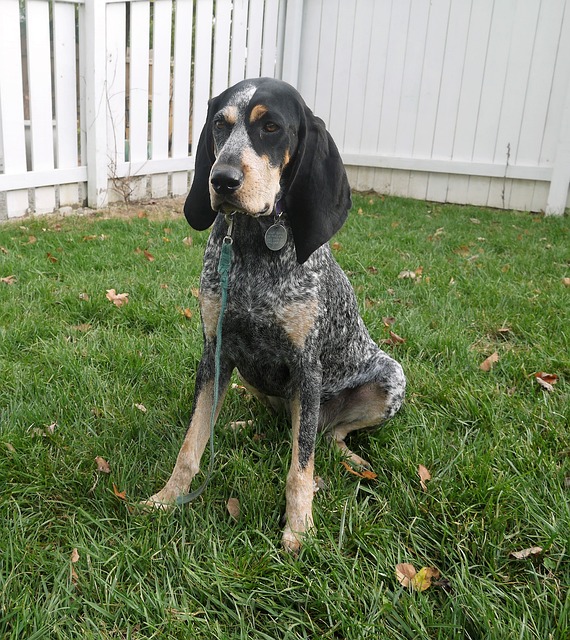
In conclusion, this overview has provided a comprehensive look at Coonhound dogs, highlighting their breed characteristics and essential care considerations. Throughout our exploration, we’ve delved into the history, distinctive traits, and important aspects of owning a Coonhound.
Coonhounds are known for their athleticism, intelligence, and hunting abilities. They are versatile working dogs that excel in tracking and trailing game, making them valuable companions for hunters and active families.
As you embark on your journey with a Coonhound, it’s important to provide them with regular exercise, mental stimulation, and positive training. Coonhounds thrive on human companionship and require socialization to develop into well-rounded dogs.
With proper care and dedication, Coonhounds can make loyal and loving family members. Remember to consult with veterinarians and experienced dog trainers for specific guidance tailored to your Coonhound’s individual needs. By understanding and meeting their needs, you’ll create a strong bond and enjoy a fulfilling companionship with this versatile breed.






